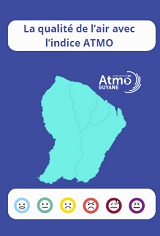Blada.com
mardi 03 février
Boîtes aux lettres
Courrier des lecteurs
Petites annonces
Emploi / Formation
Covoiturage
Infos citoyennes
Infos citoyennes
22/04/22
Médecine Antilles-Guyane : le cursus intégral pour 2023
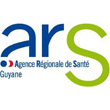 Deux inspecteurs généraux ont recommandé au gouvernement d’approuver le projet « ambitieux et mature » de faculté de médecine de plein exercice aux Antilles et en Guyane. A la rentrée 2023, les étudiants pourront effectuer leur premier cycle (trois ans) en Guyane, puis le deuxième cycle aux Antilles, avant d’effectuer leur internat sur place. Les recrutements de personnels hospitalo-universitaires vont se poursuivre tandis que plusieurs pistes existent pour faciliter la vie matérielle de ces étudiants.
Deux inspecteurs généraux ont recommandé au gouvernement d’approuver le projet « ambitieux et mature » de faculté de médecine de plein exercice aux Antilles et en Guyane. A la rentrée 2023, les étudiants pourront effectuer leur premier cycle (trois ans) en Guyane, puis le deuxième cycle aux Antilles, avant d’effectuer leur internat sur place. Les recrutements de personnels hospitalo-universitaires vont se poursuivre tandis que plusieurs pistes existent pour faciliter la vie matérielle de ces étudiants.
Le calendrier est « ambitieux et serré ». Mais à la rentrée 2023, les Antilles-Guyane auront une faculté de médecine de plein exercice. C’est-à-dire qu’à compter de cette date, les étudiants en médecine pourront effectuer l’intégralité de leurs études de médecine dans la région, jusqu’à la thèse : les trois années de premier cycle aux Antilles ou en Guyane ; les trois années de deuxième cycle aux Antilles ; et l’internat aux Antilles et en Guyane. En pratique, la rentrée 2023 verra l’ouverture de la deuxième année en Guyane et de la quatrième aux Antilles ; 2024, la troisième année en Guyane et la cinquième aux Antilles ; 2025, la sixième année aux Antilles. En 2026, les étudiants pourront choisir leur internat dans les hôpitaux de la région après avoir effectué tout leur cursus localement. Jusqu’à présent, la Guyane ne dispose que de la première année de médecine, la Guadeloupe proposant également la deuxième et la troisième année. A compter de la quatrième année, les étudiants doivent nécessairement partir dans une faculté de l’Hexagone. Avant, éventuellement, de revenir ici.
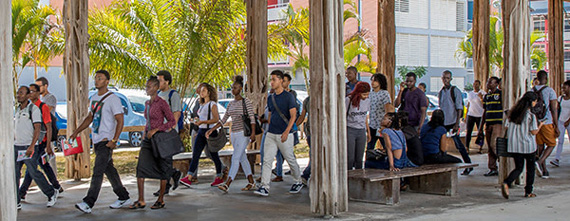
Seul un étudiant de premier cycle sur trois revient pour son internat
Ils sont rares à le faire. Seulement un étudiant sur trois issus du premier cycle Antilles-Guyane choisit de revenir faire son internat ici, après son deuxième cycle. Ce n’est pas spécifique aux études en santé. Pour les deux inspecteurs généraux Jean Debeaupuis (affaires sociales) et Patrice Blémont (éducation, sport et recherche), auteurs d’un rapport favorable à cette faculté de plein exercice associant les Antilles et la Guyane, l’absence de deuxième cycle dans la région pénalise les étudiants et les territoires : « Avant de s’engager dans des études longues de médecine (9 à 12 ans), tous les étudiants des Antilles et de Guyane savent qu’ils devront quitter leur territoire, dès la seconde année pour la Guyane et la Martinique, puis pour les 3 années du second cycle qu’ils doivent effectuer en métropole (…) À l’issue du second cycle en métropole, les étudiants antillais et guyanais ne sont pas incités à choisir la région Antilles-Guyane pour effectuer leur internat, d’autant qu’ils n’ont aucune connaissance professionnelle du territoire, faute de stages préalables en nombre suffisant. De plus, ils ont souvent pu construire une vie professionnelle ou personnelle en métropole de sorte qu’ils ne jugent pas nécessairement comme favorables les opportunités professionnelles ou les conditions d’exercice offertes sur ces territoires. »
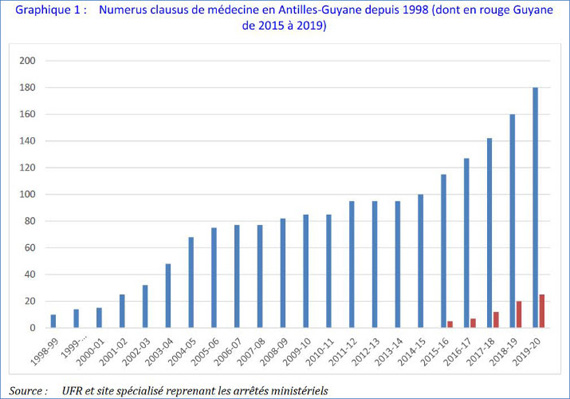
L’absence de deuxième cycle décourage certaines vocations ; l’éloignement rend plus difficile leur succès dans les études ; beaucoup ne veulent pas revenir après être partis ; et parmi les nombreux internes des Antilles-Guyane, seulement un sur six choisira de s’installer sur nos territoires. Ce qui pénalise d’autant la démographie médicale. « Les Français de l’Hexagone et des Outre-mer ont le droit de s’installer là où bon leur semble. Mais nous constatons qu’il y a une déperdition qui ne serait pas si le deuxième cycle des études médicales se faisait au niveau des Antilles-Guyane », a insisté Patrice Blémont, mardi, lors d’un échange avec les Agences Régionales de Santé et plusieurs professeurs de médecine.
30 postes hospitalo-universitaires supplémentaires en 5 ans
Si les deux inspecteurs généraux soulignent que le calendrier est « ambitieux et serré », ils soulignent que les campus universitaires ont la place pour accueillir ces nouveaux étudiants. Outre qu’ils demandent « une coopération très forte » entre les trois territoires, entre l’université des Antilles et celle de Guyane, ils ont avancé plusieurs recommandations :
- Financer 30 postes hospitalo-universitaires d’ici à 2027 avec une enveloppe budgétaire spécifique, tout en poursuivant le rattrapage de la Guyane ;
- Accorder aux externes (2e cycle) les mêmes dispositions que pour les internes : indemnité de vie chère (40 % en Guyane) et la prise en charge de leurs frais de transport pendant leur parcours de formation et de stage ;
- Organiser pour tous les étudiants de quatrième ou cinquième année un stage de trois mois (juin-août) dans l’Hexagone ou à l’étranger.
Mardi, à l’issue de l’échange avec les deux inspecteurs généraux, le Pr Pierre Couppié, directeur du DFR Santé à l’université de Guyane, s’est dit très satisfait de la prise en charge des billets d’avion « qui sont très chers en Guyane ». Il souhaite désormais travailler avec les Antilles sur l’hébergement des étudiants. « Cela fait deux ans qu’on prévient nos étudiants de Guyane qu’ils pourront effectuer leur deuxième cycle aux Antilles. Ceux qui sont partis dans l’Hexagone trouvent globalement bien de pouvoir poursuivre les études sur place , parce que ça simplifie la vie. »
Des promotions de 220 étudiants
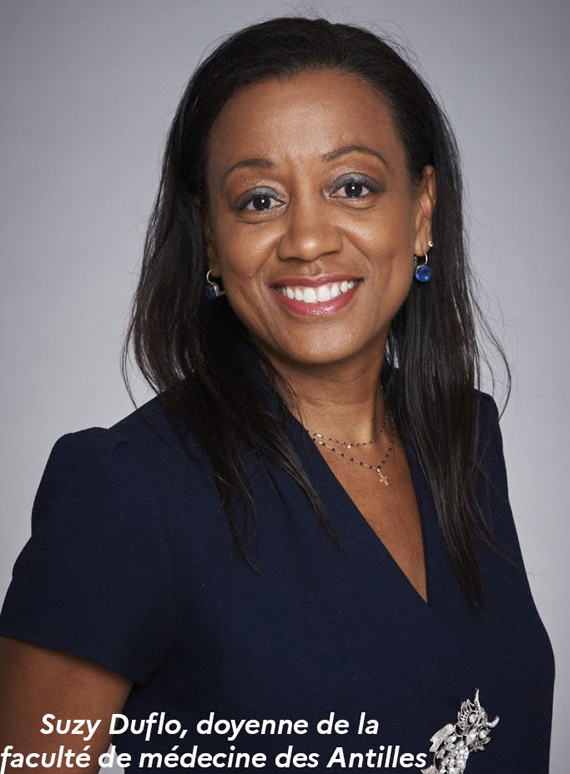 Le travail sur la création de la faculté de médecine de plein exercice associant les Antilles et la Guyane a débuté bien avant son annonce mi-mars. « Le chronomètre est en marche depuis octobre, prévient Suzy Duflo, doyenne de la faculté de médecine des Antilles. Nous avons échangé avec les inspecteurs en fin d’année 2021. En janvier, j’ai organisé un séminaire avec tous les enseignants de Martinique, Guadeloupe et Guyane, avec la participation de Marc Braun qui a mené la réforme du deuxième cycle au niveau national. Ce furent trois journées d’échanges enrichissantes, sur la manière dont nous allons nous organiser. Nous aurons deux autres séminaires d’ici à la rentrée 2023. »
Le travail sur la création de la faculté de médecine de plein exercice associant les Antilles et la Guyane a débuté bien avant son annonce mi-mars. « Le chronomètre est en marche depuis octobre, prévient Suzy Duflo, doyenne de la faculté de médecine des Antilles. Nous avons échangé avec les inspecteurs en fin d’année 2021. En janvier, j’ai organisé un séminaire avec tous les enseignants de Martinique, Guadeloupe et Guyane, avec la participation de Marc Braun qui a mené la réforme du deuxième cycle au niveau national. Ce furent trois journées d’échanges enrichissantes, sur la manière dont nous allons nous organiser. Nous aurons deux autres séminaires d’ici à la rentrée 2023. »
Mi-mars, elle a annoncé la nouvelle aux étudiants. Ils seront 220 par promotion de 2e cycle, à compter de la rentrée 2023. « On leur a expliqué le changement, les avantages à poursuivre leurs études ici, l’accompagnement qu’on leur proposera. Leur réussite, c’est un gros challenge pour nous. » Pour cela, les enseignants pourront s’appuyer sur la réforme du deuxième cycle. « Toute la partie théorique, et même la pratique, sont homogénéisés au niveau national. L’objectif, c’est que tous les étudiants de 2e cycle, de France, de Navarre et d’Outre-mer aient accès aux mêmes cours théoriques. Leur succès ne s’appuie plus sur le bachotage mais sur la maîtrise de la compétence. Pour nous, c’est intéressant. Nous sommes prêts. »
Une étape importante pour le CHRU
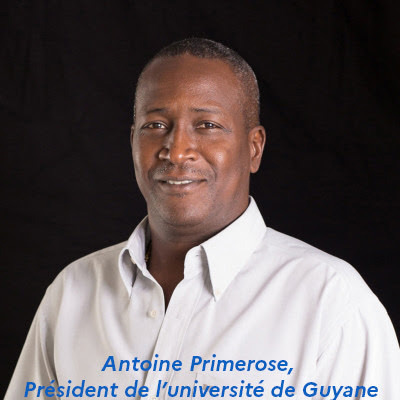 Un CHRU rappelle Antoine Primerose, président de l’université de Guyane, c’est « un hôpital avec lequel une université qui a une fac de médecine signe une convention ». Les CHU des Antilles et de La Réunion sont les seuls à s’appuyer sur une UFR santé partielle. La faculté de plein exercice mettra fin à cette exception, au moment où la Guyane se dotera d’un CHRU.
Un CHRU rappelle Antoine Primerose, président de l’université de Guyane, c’est « un hôpital avec lequel une université qui a une fac de médecine signe une convention ». Les CHU des Antilles et de La Réunion sont les seuls à s’appuyer sur une UFR santé partielle. La faculté de plein exercice mettra fin à cette exception, au moment où la Guyane se dotera d’un CHRU.
Fin mars, lors d’un comité de pilotage du CHRU, le recteur de l’académie de Guyane Alain Ayong Le Kama s’était réjoui de cette « excellente nouvelle. Nos enfants n’auront plus besoin de partir pour leur deuxième cycle ou la fin de leur premier cycle. C’est une condition sine qua non de notre CHRU. Les étudiants pourront effectuer leur internat dans nos hôpitaux dans la foulée. » Hier, celui qui est également chancelier de l’université et représentant en Guyane de la ministre en charge de l’enseignement supérieur et de la recherche, a répété son « soutien total à ce projet, indispensable pour la Guyane » et promet de « continuer d’accompagner avec énergie et implication sa bonne mise en œuvre ».
« Pour nous, cela signifie transformer le département formation recherche (DFR) en unité formation recherche (UFR) en santé, et délibérer dessus, détaille Antoine Primerose. Cela peut aller assez vite. C’est un an de travail. La convention peut aussi aller vite. Il y aura un partenariat de l’université de Guyane avec celle des Antilles, pour mutualiser nos forces. L’UFR santé regroupera les études de médecine mais aussi les formations paramédicales, la kinésithérapie qui est prioritaire pour la Guyane. Il y a aussi des discussions pour l’école de sages-femmes. »
Le président de l’université table sur 40 à 50 étudiants de médecine en deuxième année. Comme les autres étudiants en santé, ils seront accueillis dans un bâtiment dédié à la santé, vraisemblablement à la rentrée 2024. Début mai, l’université réunit les trois équipes d’architectes présélectionnées, afin de démarrer les travaux à la prochaine saison sèche. « Ce bâtiment comprendra un centre d’enseignement par simulation. C’est quelque chose qui se développe dans les facultés de médecine, qui servira à la formation initiale mais aussi à la formation continue. »
Le recrutement de professeurs des université – praticiens hospitaliers (PU-PH) se poursuit. « Avec 11 aujourd’hui en Guyane, nous en comptons déjà plus que La Réunion quand elle a ouvert sa faculté de médecine. Comme il y aura une diversification des formations et une montée en puissance, nous devrons aussi renforcer l’équipe administrative, avec du personnel dédié. » Antoine Primerose insiste également sur la recherche : « Nous devons mener de gros efforts de structuration pour augmenter la visibilité des chercheurs, à travers une plateforme de recherche en santé qui soit bien identifiée, avec des orientations claires sur les recherches qui sont menées sur le territoire. »
Les internes échangent avec la direction du CHC
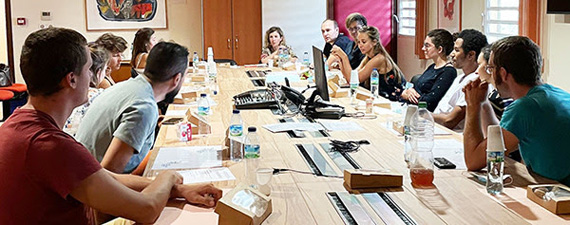
A compter du mois de mai, la Guyane accueillera 88 internes dont 27 interCHU, un nouveau record. Comme leurs prédécesseurs, ils bénéficieront d’une journée d’accueil organisée par l’ARS. Elle aura lieu le 7 mai. Les 69 internes du semestre actuel, de leurs côtés, en terminent. La semaine dernière, plusieurs d’entre eux ont échangé avec la direction de l’hôpital de Cayenne, pour livrer leur impression et formuler quelques propositions.
La qualité de l’accueil, la qualité pédagogique, l’offre de formation ont été évoquées pendant la discussion. Les échanges ont porté sur la manière dont l’hôpital peut faciliter leur arrivée et leur installation, les appuyer dans leurs démarches, ou encore faciliter leur choix de poste, une question récurrente. La direction a aussi été attentive à leur avis sur l’attractivité du CHC.
Les internes ont salué le travail de la des affaires médicales pour faciliter leur vie administrative. Ils ont formulé des suggestions pour améliorer la journée d’accueil. A partir du prochain semestre, le CHC se dotera de deux référents : un administratif et un médical. Ils serviront de portes d’entrée pour tous les soucis qu’ils peuvent rencontrer sur leur terrain de stage et en dehors de l’hôpital.
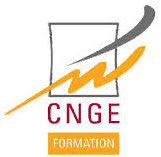 Inscription à la formation MSU de fin mai
Inscription à la formation MSU de fin mai
Les stages en cabinet de ville sont un moment important de la formation des futurs médecins. Les praticiens qui les accueillent doivent avoir suivi la formation de maître de stage universitaire (MSU), s’ils ne l’ont pas fait ou s’ils l’ont fait depuis plus de trois ans. Pour la première fois, cette formation sera dispensée en Guyane, du 30 mai au 3 juin.
Pour cela, les professionnels intéressés doivent :
- Lancer la page https://www.cnge-formation.fr/
- Créer votre compte utilisateur sur ce site en cliquant sur le lien « Connexion / Inscription » en haut à droite de la page d’accueil
- Adhérer à CNGE Formation (30 euros) en cliquant sur le lien « Adhérer » sur la droite
- S’inscrire à la formation :
- Pour la première partie les 30 et 31 mai 2022, en lançant l’adresse https://www.cnge-formation.fr/detail_formations/658 puis en cliquant sur le lien « S’inscrire » à gauche
- - Pour la seconde partie les 2 et 3 juin 2022, indissociable de la première, en lançant l’adresse https://www.cnge-formation.fr/detail_formations/659 puis en cliquant sur le lien « S’inscrire » à gauche.
Le Collège des généralistes enseignants des Antilles et de la Guyane – CGEAG a été créé le 7 février. Son siège social est en Guyane. Le Dr Laurent Dejault de Matoury est son premier président. À l’étape d’inscription au site https://www.cnge-formation.fr, il faut donc indiquer comme « Faculté et collège de rattachement » le choix « Collège des généralistes enseignants Antilles Guyane / CGEAG ».
Un plan de financement est en cours d’élaboration pour faciliter la participation des médecins exerçant à plus de 40 km de Cayenne et pour les médecins salariés.
Contact : obert.camille@orange.fr
Cet article est issu de la Lettre pro de l’Agence régionale de santé. Vous pouvez vous y abonner en remplissant le formulaire suivant : https://forms.sbc28.com/5a8bed50b85b5350ef1cd117/t13M7zUZQi2XMq5E3DdnhQ/0WQoeDwjRXqJblCpKbLDzA/form.html
 Two inspectors general recommended that the government approve the “ambitious and mature” project for a full-service medical school in the Antilles and French Guiana. At the start of the 2023 academic year, students will be able to complete their first cycle (three years) in French Guiana, then the second cycle in the West Indies, before doing their internship there. Recruitment of hospital-university staff will continue while several avenues exist to facilitate the material life of these students.
Two inspectors general recommended that the government approve the “ambitious and mature” project for a full-service medical school in the Antilles and French Guiana. At the start of the 2023 academic year, students will be able to complete their first cycle (three years) in French Guiana, then the second cycle in the West Indies, before doing their internship there. Recruitment of hospital-university staff will continue while several avenues exist to facilitate the material life of these students.
The schedule is “ambitious and tight”. But at the start of the 2023 academic year, the Antilles-French Guiana will have a full-service medical school. That is to say that from this date, medical students will be able to carry out all of their medical studies in the region, up to the thesis: the three years of the first cycle in the Antilles or in French Guiana; the three years of the second cycle in the West Indies; and boarding school in the West Indies and French Guiana. In practice, the start of the 2023 academic year will see the opening of the second year in French Guiana and the fourth in the West Indies; 2024, the third year in French Guiana and the fifth in the West Indies; 2025, the sixth year in the West Indies. In 2026, students will be able to choose their internship in hospitals in the region after completing their entire course locally. So far, French Guiana only has the first year of medicine, with Guadeloupe also offering the second and third year. From the fourth year, students must necessarily go to a faculty in France. Before, possibly, coming back here.

Only one in three undergraduates return for their internship
They are rare to do so. Only one out of three students from the Antilles-Guyana undergraduate program chooses to return to do their internship here, after their second cycle. This is not specific to health studies. For the two general inspectors Jean Debeaupuis (social affairs) and Patrice Blémont (education, sport and research), authors of a favorable report on this full-service faculty associating the Antilles and French Guiana, the absence of a second cycle in the region penalizes students and territories: "Before embarking on long medical studies (9 to 12 years), all students from the West Indies and French Guiana know that they will have to leave their territory, from the second year to French Guiana and Martinique, then for the 3 years of the second cycle that they must complete in mainland France (…) At the end of the second cycle in mainland France, West Indian and Guianese students are not encouraged to choose the Antilles- French Guiana to do their internship, especially since they have no professional knowledge of the territory, for lack of sufficient prior internships. In addition, they have often been able to build a professional or personal life in mainland France, so that they do not necessarily consider the professional opportunities or working conditions offered in these territories as favorable."

The absence of a second cycle discourages certain vocations; distance makes it more difficult for them to succeed in studies; many do not want to return after leaving; and among the many residents of the Antilles-French Guiana, only one in six will choose to settle in our territories. This penalizes medical demography all the more. “French people from France and overseas have the right to settle wherever they want. But we note that there is a loss which would not be if the second cycle of medical studies was done at the level of the Antilles-French Guiana ”, insisted Patrice Blémont, Tuesday, during an exchange with the Regional Health Agencies. and several professors of medicine.
30 additional hospital-university positions in 5 years
If the two inspectors general underline that the schedule is "ambitious and tight", they underline that the university campuses have the place to welcome these new students. In addition to asking for "very strong cooperation" between the three territories, between the University of the West Indies and that of French Guiana, they made several recommendations:
- Fund 30 university hospital positions by 2027 with a specific budget envelope, while continuing to catch up with French Guiana;
- Grant externs (2nd cycle) the same provisions as for interns: cost-of-living allowance (40% in French Guiana) and payment of their transport costs during their training and internship;
- Organize for all fourth and fifth year students a three-month internship (June-August) in France or abroad.
Tuesday, at the end of the exchange with the two general inspectors, Pr Pierre Couppié, director of the DFR Health at the University of French Guiana, said he was very satisfied with the management of the plane tickets " which are very expensive in French Guyana”. He now wants to work with the West Indies on student accommodation. “We have been warning our students from French Guiana for two years that they will be able to do their second cycle in the West Indies. Those who have gone to France generally find it good to be able to continue their studies there, because it simplifies life."
Classes of 220 students
 Work on the creation of the full-service medical faculty associating the Antilles and French Guiana began well before its announcement in mid-March. “The stopwatch has been running since October, warns Suzy Duflo, dean of the West Indies Faculty of Medicine. We spoke with the inspectors at the end of 2021. In January, I organized a seminar with all the teachers in Martinique, Guadeloupe and French Guiana, with the participation of Marc Braun who led the reform of the second cycle at the level national. These were three days of enriching discussions on how we are going to organize ourselves. We will have two other seminars by the start of the 2023 school year.
Work on the creation of the full-service medical faculty associating the Antilles and French Guiana began well before its announcement in mid-March. “The stopwatch has been running since October, warns Suzy Duflo, dean of the West Indies Faculty of Medicine. We spoke with the inspectors at the end of 2021. In January, I organized a seminar with all the teachers in Martinique, Guadeloupe and French Guiana, with the participation of Marc Braun who led the reform of the second cycle at the level national. These were three days of enriching discussions on how we are going to organize ourselves. We will have two other seminars by the start of the 2023 school year.
In mid-March, she broke the news to students. There will be 220 per 2nd cycle promotion, from the start of the 2023 school year. “We explained to them the change, the advantages of continuing their studies here, the support that we will offer them. Their success is a big challenge for us. For this, teachers will be able to rely on the reform of the second cycle. “All the theoretical part, and even the practice, are homogenized at the national level. The objective is that all 2nd cycle students from France, Navarre and overseas have access to the same theoretical courses. Their success is no longer based on cramming but on mastering the skill. For us, it's interesting. We are ready."
An important step for the CHRU
 A CHRU reminds Antoine Primerose, president of the University of French Guiana, it is “a hospital with which a university which has a medical school signs an agreement”. The West Indies and Reunion University Hospitals are the only ones to rely on a partial health UFR. The faculty of full exercise will put an end to this exception, when French Guiana will have a CHRU.
A CHRU reminds Antoine Primerose, president of the University of French Guiana, it is “a hospital with which a university which has a medical school signs an agreement”. The West Indies and Reunion University Hospitals are the only ones to rely on a partial health UFR. The faculty of full exercise will put an end to this exception, when French Guiana will have a CHRU.
At the end of March, during a steering committee of the CHRU, the rector of the Academy of French Guiana Alain Ayong Le Kama was delighted with this “excellent news. Our children will no longer need to leave for their second cycle or the end of their first cycle. This is a sine qua non of our CHRU. Students will be able to do their internship in our hospitals immediately after. "Yesterday, the one who is also chancellor of the university and representative in French Guiana of the minister in charge of higher education and research, repeated his "full support for this project, essential for French Guiana" and promised to "continue to accompany with energy and involvement its proper implementation".
“For us, this means transforming the research training department (DFR) into a research training unit (UFR) in health, and deliberating on it, explains Antoine Primerose. It can go quite quickly. It's a year of work. The convention can also go quickly. There will be a partnership between the University of French Guiana and that of the West Indies, to pool our strengths. The UFR health will bring together medical studies but also paramedical training, physiotherapy which is a priority for French Guiana. There are also talks for midwifery school."
The president of the university expects 40 to 50 medical students in their second year. Like the other health students, they will be welcomed in a building dedicated to health, probably at the start of the 2024 academic year. At the beginning of May, the university brings together the three teams of pre-selected architects, in order to start work in the next dry season. “This building will include a simulation education center. This is something that is being developed in medical faculties, which will be used for initial training but also for continuing education."
The recruitment of university professors – hospital practitioners (PU-PH) continues. “With 11 today in French Guiana, we already have more than Reunion when it opened its medical school. As there will be a diversification of training and an increase in power, we will also have to strengthen the administrative team, with dedicated staff. Antoine Primerose also insists on research: “We need to make major structural efforts to increase the visibility of researchers, through a well-identified health research platform, with clear orientations on the research that is carried out on the territory."
The interns discuss with the management of the CHC

As of May, French Guiana will welcome 88 interns, including 27 interCHU, a new record. Like their predecessors, they will benefit from a welcome day organized by the ARS. It will take place on May 7. The 69 interns of the current semester, for their part, are coming to an end. Last week, several of them spoke with the management of the Cayenne hospital, to give their impression and make some proposals.
The quality of the reception, the educational quality, the training offer were mentioned during the discussion. The discussions focused on how the hospital can facilitate their arrival and installation, support them in their efforts, or even facilitate their choice of position, a recurring question. The management was also attentive to their opinion on the attractiveness of the CHC.
The interns praised the work of the medical affairs department to facilitate their administrative life. They made suggestions to improve the welcome day. From the next semester, the CHC will have two referents: one administrative and one medical. They will serve as gateways for all the worries they may encounter on their internship site and outside the hospital.
 Registration for the MSU training at the end of May
Registration for the MSU training at the end of May
Internships in private practice are an important moment in the training of future doctors. The practitioners who host them must have completed the university internship supervisor (MSU) training, if they have not done so or if they have done so for more than three years. For the first time, this training will be provided in French Guiana, from May 30 to June 3.
For this, interested professionals must:
- Launch the page https://www.cnge-formation.fr/
- Create your user account on this site by clicking on the “Login / Registration” link at the top right of the home page
- Join CNGE Formation (30 euros) by clicking on the “Join” link on the right
- Register for training:
- For the first part on May 30 and 31, 2022, by launching the address https://www.cnge-formation.fr/detail_formations/658 then clicking on the "Register" link on the left
- - For the second part on June 2 and 3, 2022, inseparable from the first, by launching the address https://www.cnge-formation.fr/detail_formations/659 then clicking on the "Register" link on the left .
The College of General Teachers of the Antilles and French Guiana – CGEAG was created on February 7. Its head office is in French Guiana. Dr. Laurent Dejault de Matoury is its first president. At the registration stage on the site https://www.cnge-formation.fr, you must therefore indicate as "Faculty and college of attachment" the choice "College of generalist teachers Antilles French Guiana / CGEAG".
A financing plan is being drawn up to facilitate the participation of doctors practicing more than 40 km from Cayenne and for salaried doctors.
Contact: obert.camille@orange.fr
This article is from the Regional Health Agency's Newsletter. You can subscribe by filling out the following form: https://forms.sbc28.com/5a8bed50b85b5350ef1cd117/t13M7zUZQi2XMq5E3DdnhQ/0WQoeDwjRXqJblCpKbLDzA/form.html
Raccourcis


passer une petite annonce

passer une annonce de covoiturage


passer une annonce d’emploi


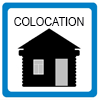
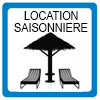

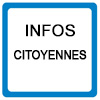
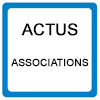
associations, postez vos actualités

participez au courrier des lecteurs
La Guyane c’est ici
La qualité de l’Air avec
ATMO
Photothèque

Lancements 2022
Vol 259 Ariane 5



